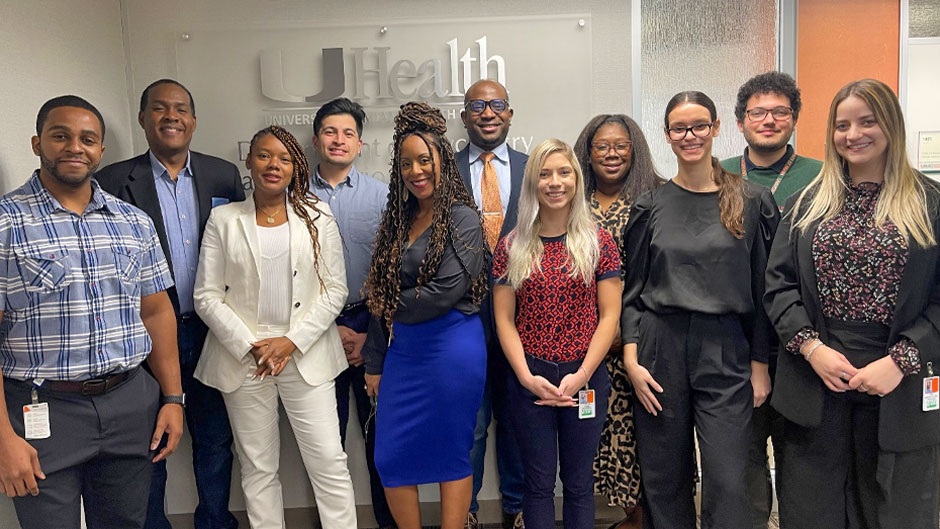Did you know your ethnicity determines your overall sleep health?
The team at the Translational Sleep and Circadian Sciences (TSCS) Center at the University of Miami Miller School of Medicine is dedicated to raising awareness of sleep health and becoming a resource to stimulate, support, and evaluate high-priority research in circadian sciences with a particular focus on minority and low-income communities.
March 13–19 is recognized as Sleep Awareness Week by the National Sleep Foundation. During the week, the TSCS team will launch an annual campaign to spread knowledge of the impact of varying sleep disorders at a personal, societal, and public health level.
Girardin Jean-Louis, professor of psychiatry and neurology and the director of the TSCS center, leads his staff in implementing stakeholder-engaged digital solutions to raise awareness of sleep health and to overcome barriers preventing residents in underserved communities from accessing available treatment for sleep disorders. On March 16, the team will host a virtual seminar to address sleep health equity.
“Unfortunately, communities where individuals are in most need of sleep health information are unaware of sleep problems and related deleterious outcomes on their overall health and quality of life,” said Jean-Louis, who began examining sleep health in 2000. Today, he is a leading expert on sleep medicine and circadian sciences and is also focused on training the next generation of sleep and circadian sciences experts through sponsored training programs.
The TSCS group hopes to advance the science as well as the practice of sleep through continual community-based research programs, such as a new research initiative launched in conjunction with the University’s new Media and Innovation Laboratory led by associate professor Azizi Seixas, the associate director of the lab. This groundbreaking program utilizes patient worn and home-based sensors to study the link between poor sleep and serious health disorders, including heart disease and dementia. While many members of the community may be aware of some consequences of poor sleep, not seeking help for their condition can exacerbate serious health conditions.
“Though sleep clinicians and researchers have made great strides in understanding, treating, and managing sleep disorders, we have a long way to go,” said Judite Blanc, TSCS research assistant professor.
Register for the online event.

